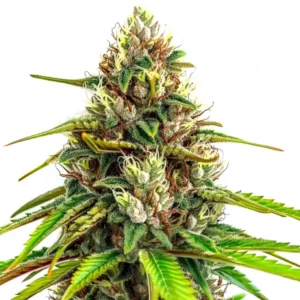
How Cannabis Oil Helps Brain Tumor Patients: Relief & Treatment Support
Brain Tumors and Cannabis Oil
What Are Brain Tumors and How Do They Develop?
Cannabis oil treatment for brain tumors has gained attention due to its potential to support symptom management and complement conventional therapies. Brain tumors are abnormal cell growths within the brain that can be benign (non-cancerous) or malignant (cancerous). These tumors develop when brain cells divide uncontrollably, forming masses that interfere with normal brain function. They can originate in the brain (primary tumors) or spread from other parts of the body (secondary or metastatic tumors).
The symptoms of brain tumors vary depending on their size, location, and rate of growth. Common symptoms include persistent headaches, seizures, cognitive impairments, vision or hearing problems, and personality changes. Tumors in different brain regions affect specific functions; for example, tumors in the frontal lobe can impact decision-making and behavior.
Recommended Strains
24k Gold
|
|
THC | 19% - 22% (Medium) |
|
|
Type | Feminized |
|
|
Yield | High |
|
|
Phenotype | 60% Indica / 40% Sativa |
24k Gold Autoflower
|
|
THC | 18% - 24% (Medium) |
|
|
Type | Autoflowering |
|
|
Yield | Medium |
|
|
Phenotype | 40% Indica / 60% Sativa |
Endocannabinoid System in Brain Tumor Growth
The endocannabinoid system plays a key role in cannabis oil treatment for brain tumors, as cannabinoids interact with CB1 and CB2 receptors to regulate inflammation and tumor progression. The endocannabinoid system (ECS) is a crucial biological network that regulates various physiological processes, including mood, appetite, immune response, and pain perception. The ECS consists of cannabinoid receptors (CB1 and CB2), endogenous cannabinoids, and enzymes that help maintain homeostasis in the body.
Studies suggest that the ECS may also play a function in tumor development. Some cancerous cells, including brain tumors, express CB1 and CB2 receptors. This interaction has led researchers to investigate whether activating these receptors with cannabinoids could slow tumor growth or induce cancer cell death.
How Cannabis Oil Interacts with Tumor Cells
Research suggests that cannabis oil treatment for brain tumors may influence tumor cell activity by inducing apoptosis, reducing angiogenesis, and enhancing the effects of traditional therapies.
Cannabis oil contains active compounds such as cannabidiol (CBD) and tetrahydrocannabinol (THC), both of which interact with the ECS. Studies have shown that these cannabinoids may impact brain tumors in several ways:
- Inhibiting Tumor Growth: Some laboratory studies suggest that CBD and THC can interfere with tumor cell division, potentially slowing the progression of brain tumors.
- Inducing Apoptosis: Cannabinoids may trigger apoptosis (programmed cell death) in tumor cells, preventing them from growing and spreading.
- Reducing Angiogenesis: Tumors require new blood vessel formation to grow, a process called angiogenesis. Some research indicates that cannabinoids may suppress angiogenesis, limiting the tumor’s ability to spread.
- Enhancing the Effects of Traditional Treatments: Some studies suggest that cannabis oil, when used alongside chemotherapy and radiation, may enhance the effectiveness of these treatments by making cancer cells more susceptible to their effects.
While these findings are promising, more clinical research is needed to confirm how cannabis oil can be integrated into brain tumor treatment strategies.
Promos & Deals
Potential Benefits of Cannabis Oil for Brain Tumors
Can Cannabis Oil Help Slow Tumor Growth?
Cannabis oil treatment for brain tumors is being researched for its ability to modulate cancer cell behavior, potentially reducing tumor progression and enhancing sensitivity to chemotherapy. Preclinical studies have found that cannabinoids can influence cancer cell signaling pathways, reducing tumor progression in some cases. While the exact mechanisms remain under investigation, researchers believe that THC and CBD interact with CB1 and CB2 receptors in ways that may suppress tumor growth.
One study on glioblastoma, an aggressive brain cancer, found that cannabinoids could reduce tumor viability and increase cancer cell sensitivity to conventional therapies. However, it is essential to emphasize that cannabis oil should not be seen as a replacement for traditional cancer treatments but rather as a potential complementary therapy.
Managing Pain and Inflammation with Cannabis Oil
One of the key benefits of cannabis oil treatment for brain tumors is its ability to relieve pain and inflammation. Brain tumors often cause severe pain and inflammation, which can significantly impact a patient’s quality of life. Cannabis oil has well-documented analgesic (pain-relieving) and anti-inflammatory properties that may help alleviate these symptoms. By interacting with CB1 receptors in the central nervous system, THC may reduce pain perception, while CBD may help lower inflammation levels.
For patients undergoing chemotherapy or radiation, cannabis oil may provide additional pain relief without the side effects associated with opioid medications, such as dependency and nausea. This is especially important given the opioid crisis and the increasing need for safer pain management alternatives.

CBD and THC in Neurological Health
Both CBD and THC have been studied for their neuroprotective effects. They may help support brain health by reducing oxidative stress, inflammation, and excitotoxicity.
CBD, in particular, has been found to support brain function without causing psychoactive effects. It interacts with serotonin and dopamine receptors, which may help improve mood, reduce anxiety, and support cognitive function in brain tumor patients. Additionally, CBD’s ability to reduce seizures has made it an area of interest for brain cancer patients experiencing epilepsy-related symptoms.
Can Cannabis Oil Reduce Treatment Side Effects Like Nausea and Fatigue?
Traditional cancer treatments, such as chemotherapy and radiation, often cause debilitating side effects like nausea, fatigue, and loss of appetite. Cannabis oil has been widely recognized for its ability to alleviate chemotherapy-induced nausea and vomiting. The FDA has even approved synthetic cannabinoid medications like dronabinol for this purpose.
By promoting appetite stimulation and reducing nausea, cannabis oil can help patients maintain better nutritional health. Some patients also report improved sleep quality, which is essential for healing and maintaining mental well-being during treatment.

FAQs About Cannabis Oil Treatment for Brain Tumors
Can cannabis oil replace chemotherapy or radiation for brain tumors?
Cannabis oil treatment for brain tumors should be seen as a complementary option for conventional therapies like chemotherapy and radiation. Cannabis oil is not a replacement for chemotherapy or radiation.
How long does it take for cannabis oil to show effects on brain tumors?
Effects vary based on the formulation and individual response. Some patients report symptom relief within hours, while potential anti-tumor benefits may take weeks or months of consistent use. Tracking progress with medical imaging and consultations with healthcare providers can help determine effectiveness.
Is cannabis oil safe for long-term use in brain tumor patients?
Research suggests that CBD is generally safe for long-term use, while prolonged THC exposure requires careful monitoring. Regular medical consultations are essential for safe, effective treatment planning. Choosing high-quality, lab-tested cannabis oil and adjusting dosages based on patient response can help ensure safe and effective long-term use.



















